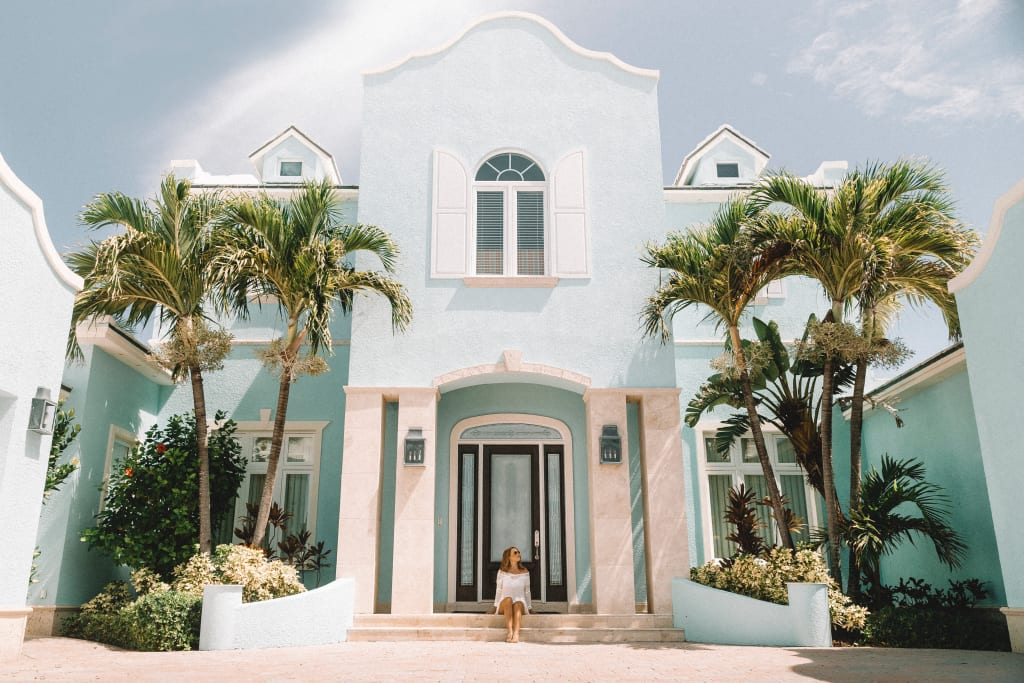Is Buying a House Really an Investment?
As you build your life and career, you may be encouraged to stop renting and purchase a home to live in. But is that really financially sound advice, and is buying a house really an investment?

In the United States, home ownership is considered a basic tenet of becoming an adult. The expectation in this country is that when you grow up, you graduate high school, attend a college or trade school, start a career, start a family, and then buy a house. They tell you that buying a home is an important part of growing up and having mature finances. In fact, some financial advisors encourage home ownership as a long term investment, making tips on how to become a home owner as a Millennial more necessary than ever. For years, the prevailing advice has been to invest in real estate because historically, real estate has always increased in value. Today, however, that is not always the case. Is buying a house really an investment? Or, more importantly, is buying a house a good investment? The recent housing crisis left many people wondering if home ownership really is all it's cracked up to be. In this article, I will discuss why buying a home may not be as foolproof of an investment as many believe.
Home Ownership Compared to Other Investments

Photo by katie manning on Unsplash
Typical investments, like stocks or bonds, are judged by many factors. The two most important, however, are security and potential for return. Security refers to the likelihood of an investment to make money rather than lose it. Potential for return, meanwhile, refers to exactly how much money you stand to make off a particular investment. Government bonds are one example of an extremely secure investment, as you are pretty much guaranteed to receive the stated value of your bond unless the government completely collapses. The tradeoff is that the potential for return is typically much lower compared to investing in the stock market, and there are a number of basic stock trading strategies for beginners to consider if you want to go this route. Buying stock can be risky, as you never know when a company's stock will dip or rise, but the potential for return is much greater.
So is buying a house really an investment? It depends. Houses generally do increase in value over many years; however, the annual return isn't as clear cut as other investing routes. Just like with stocks, the goal is to buy low and sell high, but there are many more hidden costs with real estate than with stocks. Buying and selling a house almost invariably means a real estate agent will be getting involved, and that means they'll be taking a cut of as much as two to five percent of the value of the property in closing costs. Once you actually own the property, you still have to pay yearly real estate taxes, which take a chunk out of your annual return as well. These factors are already adding up to say that buying a home is not an investment worth making. After all, compare this to a more conventional investment route. Would you want to invest in a bond if you had to pay up to several thousand dollars every year just to hold that bond?
While real estate typically does appreciate in value, this is almost entirely thanks to inflation and nothing more. Just because a house that was bought in the 1970s for $100,000 is now worth more than half a million dollars, it doesn't actually mean you necessarily made money. When adjusted for inflation, the average increase in value of real estate in the United States is less than one percent per year. This annual return is even less than bonds, whose two to three percent yields are already considered paltry compared to what can be earned from other investments. Since the increase in home prices over time is almost entirely the result of inflation, can home ownership even be called an investment?
Elements of Owning a Home When Considering It as an Investment

Photo by FuYong Hua on Unsplash
While so far, I've been bad-mouthing home ownership pretty heavily, let's not forget what makes buying a home different from investing in stocks or bonds: you can't live in a bond! Regardless of a home's monetary value, the shelter it provides cannot be accurately translated to a number. With that in mind, is buying a house really an investment? If you're living in the house by yourself, then no, it isn't. Between taxes, maintenance and upkeep, and other costs, living in a house is not a moneymaking venture. I don't recommend buying a home if your goal is to sell it for a profit in ten or twenty years, because that simply won't happen. (You can make money by renovating and "flipping" old houses, but at that point, "investing" is not the word I'd use to describe what you're doing.) You are better off living where you want to (be that in a purchased residence or a rented unit like an apartment, considering you have thought about the advantages of owning vs renting) and exploring other routes of investing.
By the way, many people use the idea of home ownership as a long term investment to advocate for buying a house rather than renting an apartment. For the most part, buying versus renting your residence is beyond the scope of this article, but don't let yourself be fooled into thinking you'll save money in the long term by buying a home. While its true that money you pay to your landlord to rent a property can never really be earned back, this is balanced out by the hidden costs of owning a home. Even after a house is paid off in full, you're still on the line for any maintenance costs, and that includes the resources and time cost of handling the maintenance yourself. Additionally, you'll have to pay property taxes on your home every single year, a cost that can be quite considerable in many states.
There is only one way in which buying a house can become a decent investment, and that is if you aren't the only one living in it. Owning an investment property can actually be highly lucrative if you play your cards right. You can purchase a large home and rent out rooms to multiple tenants. You can purchase a duplex or other multi-unit property and live in one unit while renting out the others. Another option is to move out of your house entirely and rent it out to someone while you find another place to live, such as an apartment. The idea with these routes is that the rent you charge your tenants to assuage the various costs associated with home ownership. In the best-case scenario, your tenants completely cover the costs of the house and you either break even or make a little extra money off their rent. After however many years, you can sell the house for more than what you bought it for (assuming you kept good care of the property), and you have successfully invested in a house.
About the Creator
Joseph D. N. Kendrick
Writer of words. Haver of cats. joeykendrick.com






Comments
There are no comments for this story
Be the first to respond and start the conversation.